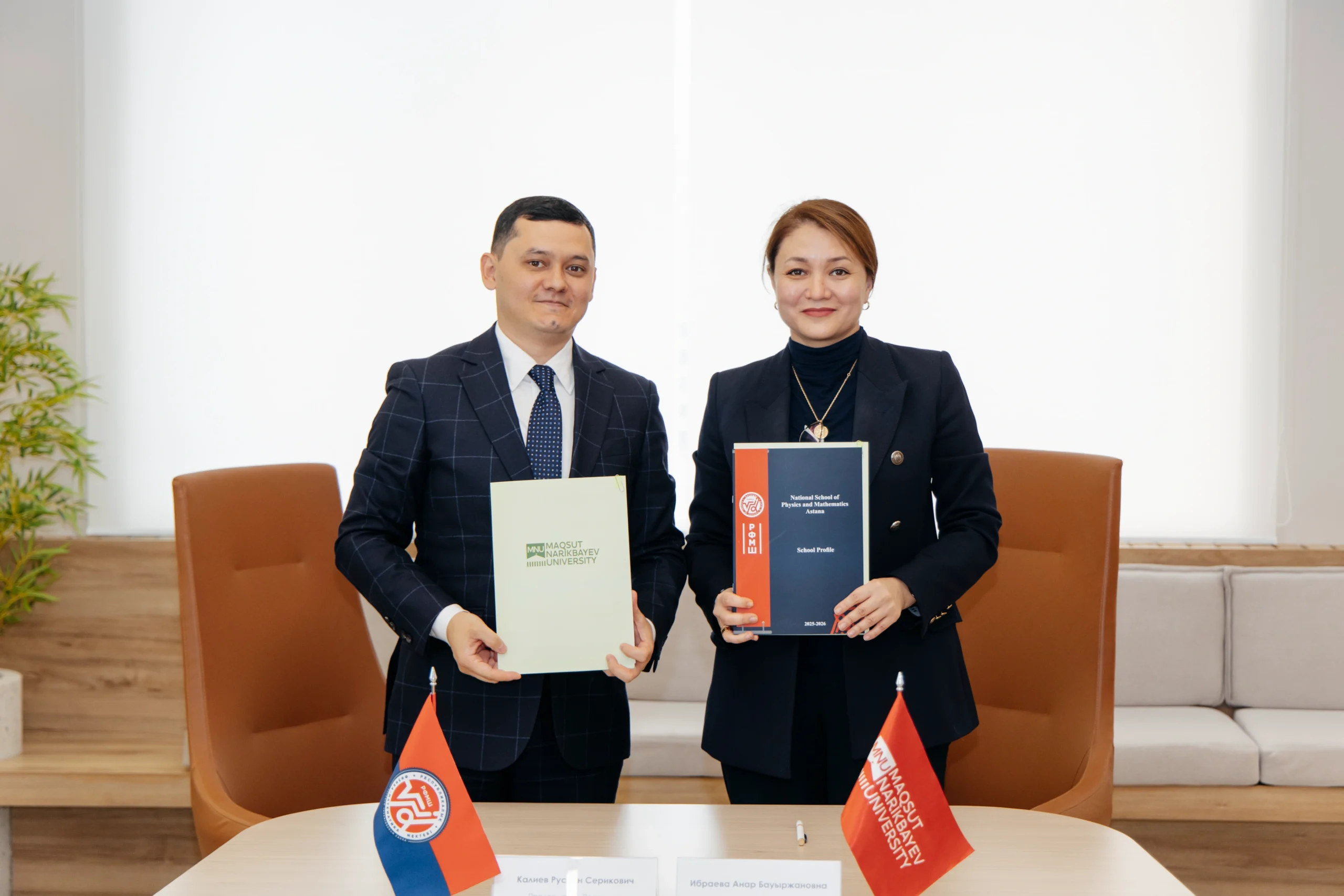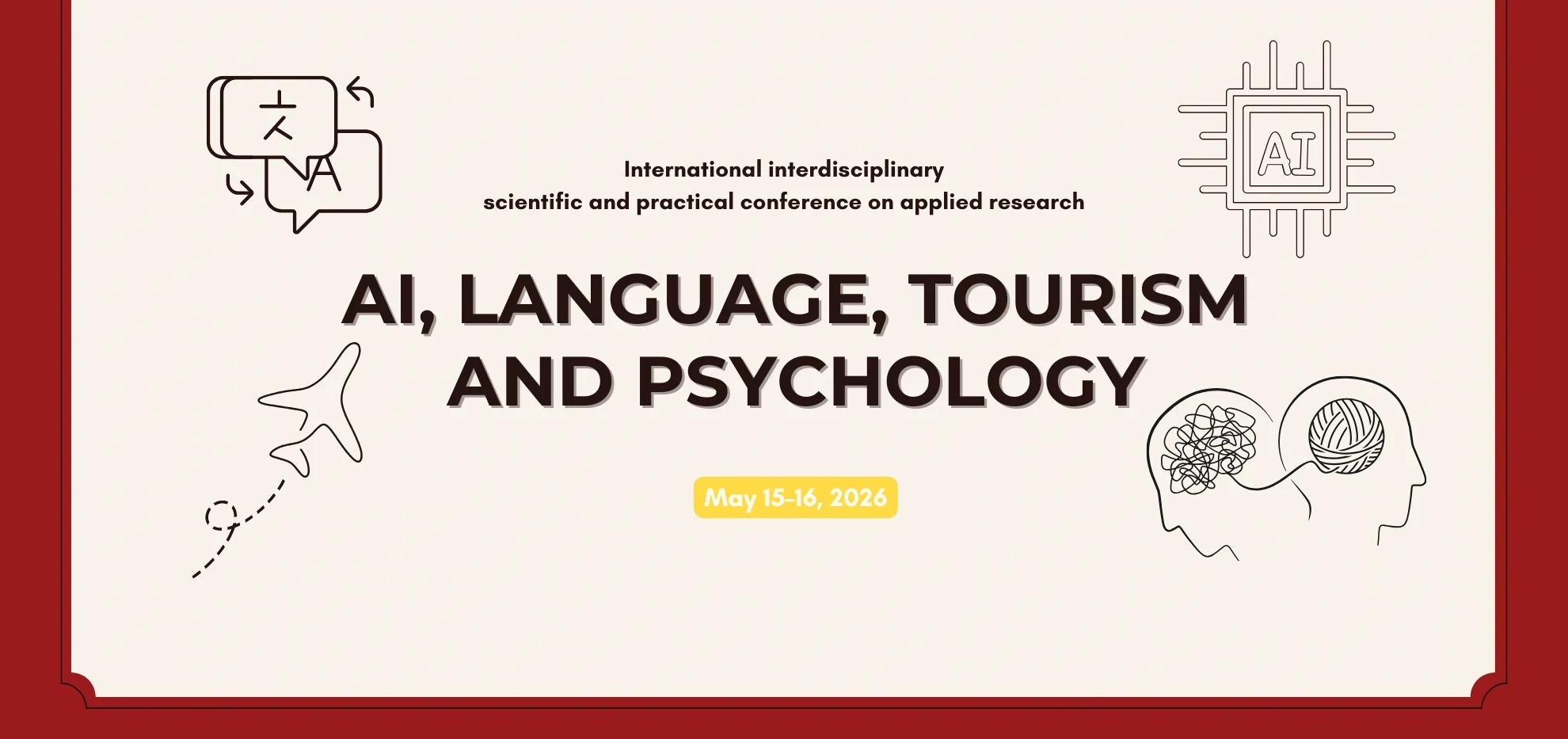Faculty members and researchers at Maqsut Narikbayev University (MNU) continue to play an active role in shaping key legislative developments in Kazakhstan. Their contributions aim to protect citizens’ rights, promote technological innovation, and enhance the quality of law enforcement practices. Their research-based evaluations are regularly presented at parliamentary hearings, Senate and Mazhilis committee meetings, and through the activities of the Public Chamber.
AI and Justice: A Legal Perspective on the Future
On 14 May, the Senate of the Parliament of the Republic of Kazakhstan convened a meeting of the Committee on Constitutional Legislation, the Judicial System, and Law Enforcement Agencies. The session focused on the introduction and application of artificial intelligence (AI) technologies in law enforcement and the judiciary, as well as the broader prospects for the digitalisation of Kazakhstan’s legal system.
Representing Maqsut Narikbayev University, Teaching Professor Dana Utegen outlined the principal legal challenges associated with the growing use of AI. She paid particular attention to the legal regulation of biometric data circulation, highlighting the necessity of an integrated approach to its protection.
“It is essential to develop a national strategy for AI implementation, establish a legal framework for regulating biometric data circulation, and initiate pilot projects in areas such as judicial practice analysis and recidivism prediction,” stated Dana Utegen.
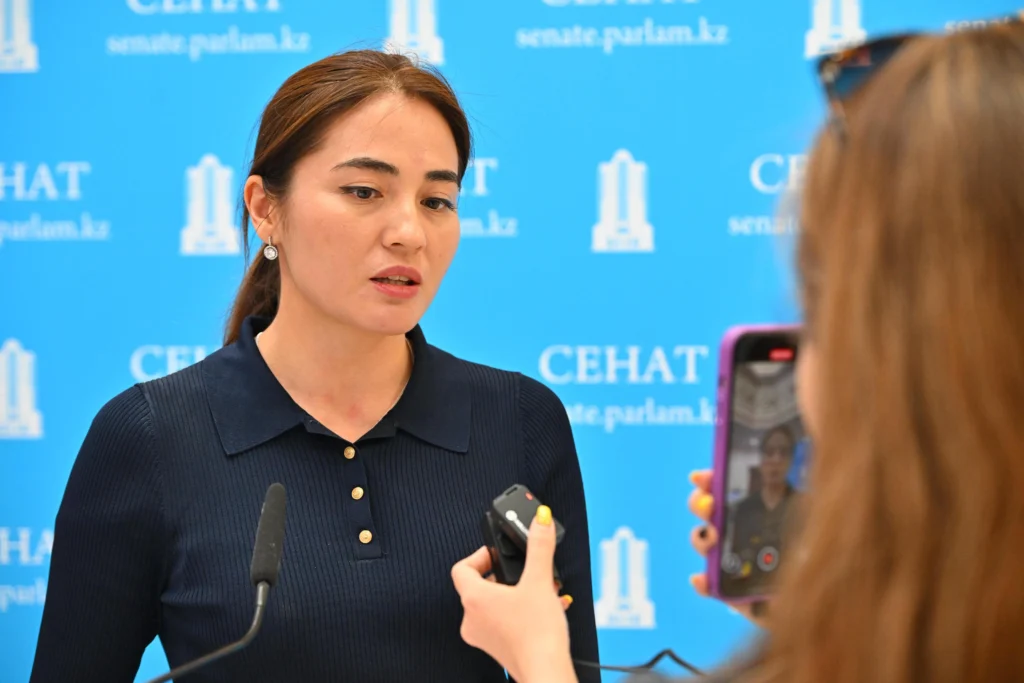
She further proposed the development of specialised educational programmes for judges, prosecutors, and law enforcement personnel to facilitate the systematic use of AI technologies in practice. Moreover, she stressed the importance of Kazakhstan’s active participation in international knowledge exchange on the ethical and effective use of AI in justice.
Participants of the meeting reached a consensus on the need to establish a balanced regulatory framework to support the ethical and progressive use of AI in law enforcement and judicial processes.
Crime Prevention and Protection Against Domestic Violence
On 16 May, MNU professors once again presented their expert opinions, this time at the Public Chamber of the Mazhilis of the Parliament of the Republic of Kazakhstan. The session focused on the draft of a new law on offence prevention, which consolidates provisions from five existing laws, including the 2009 Law on the Prevention of Domestic Violence.
Associate Professor of MNU Muslim Khassenov expressed concern that merging various legislative acts could undermine the existing framework for responding to and preventing domestic violence in Kazakhstan.
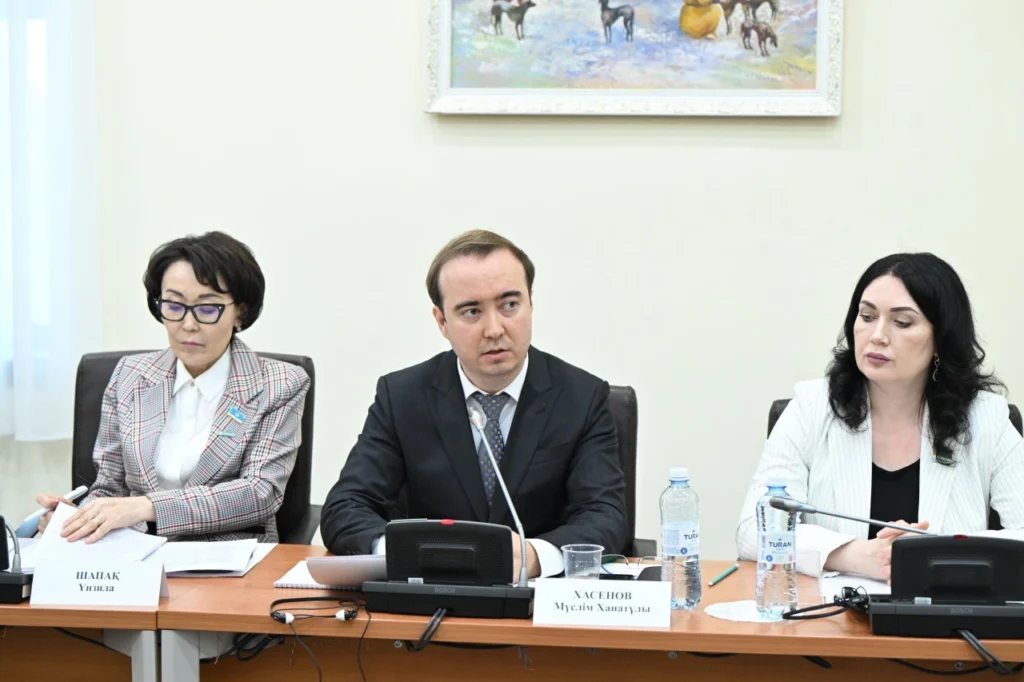
“Domestic violence is not merely a breach of public order; it constitutes a violation of fundamental human rights, namely personal security and inviolability. Repealing the current law could be a serious mistake with unforeseeable consequences,” emphasised Muslim Khassenov.
He explained that the specific nature of domestic violence necessitates dedicated legislation, as such offences often occur within familial, dependent, and socially obscured contexts. According to him, integration into a general legislative framework would reduce the effectiveness of prevention and victim protection measures. Khassenov also underlined the importance of strengthening the role of the authorised body for state family policy and introducing monitoring mechanisms, statistical tools, and systems for evaluating the effectiveness of preventive measures.
Legal Expertise and Research-Based Evaluation
Mazhilis Deputy and MNU Emeritus Professor Unzila Shapak, along with Aliya Orazbayeva, Director of the Institute of Constitutional and Political Studies at MNU, also provided expert assessments of the draft law on crime prevention. Orazbayeva noted that the draft contains numerous legal ambiguities, including the absence of clear definitions of key concepts, risks of arbitrary interference with privacy, potential violations of the presumption of innocence, insufficient personal data protection, and overlapping mandates of various governmental bodies. She asserted that the document requires in-depth legal analysis and thorough research-based evaluation involving the academic and expert community.
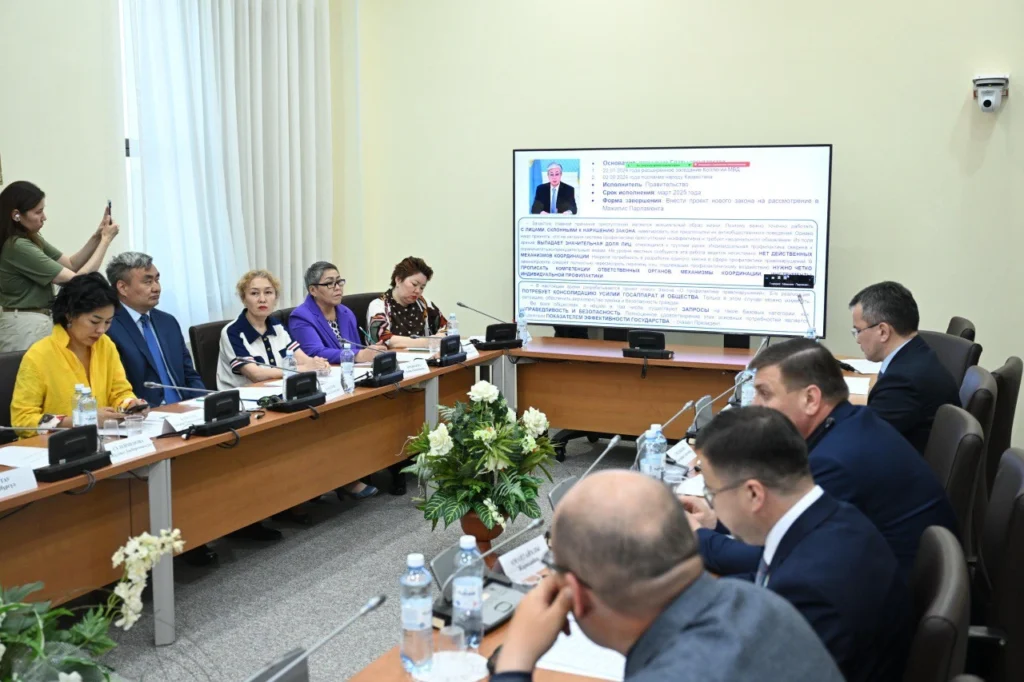
Capacity Building and Systemic Reforms
Previously, the Senate conducted parliamentary hearings focused on strengthening human resources in the judicial and law enforcement systems, as well as enhancing the quality of legislative processes. MNU Provost Sergey Pen initiated several proposals aimed at systemic reform in legal education. These include the introduction of an independent graduate competency assessment mechanism with employer involvement, the expansion of state educational grants tailored to regional needs and public service requirements, and the development of a professional standard for lawyers through extensive public and professional consultation.
It is also worth noting that the Public Project Office of the Senate of the Parliament of the Republic of Kazakhstan operates in conjunction with the MIND Analytics and Research Centre (Maqsut Narikbayev Institute for Network and Development).





